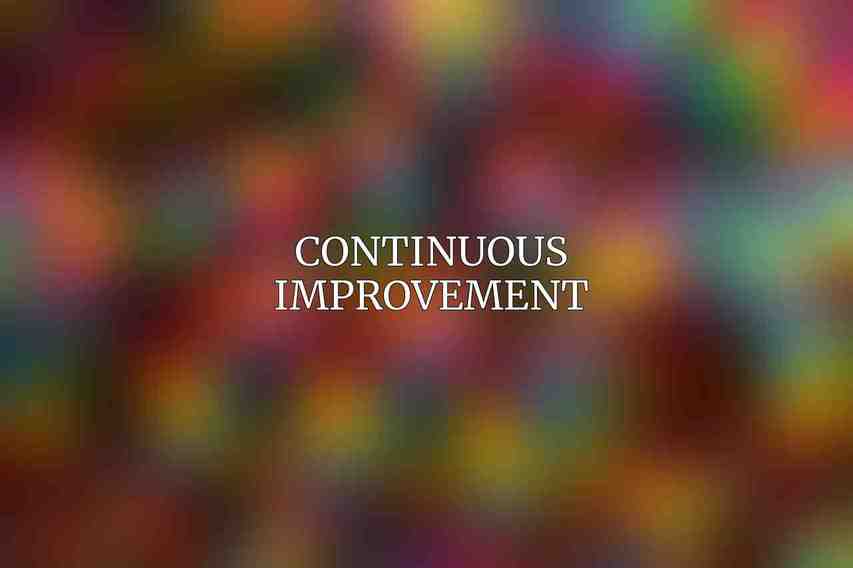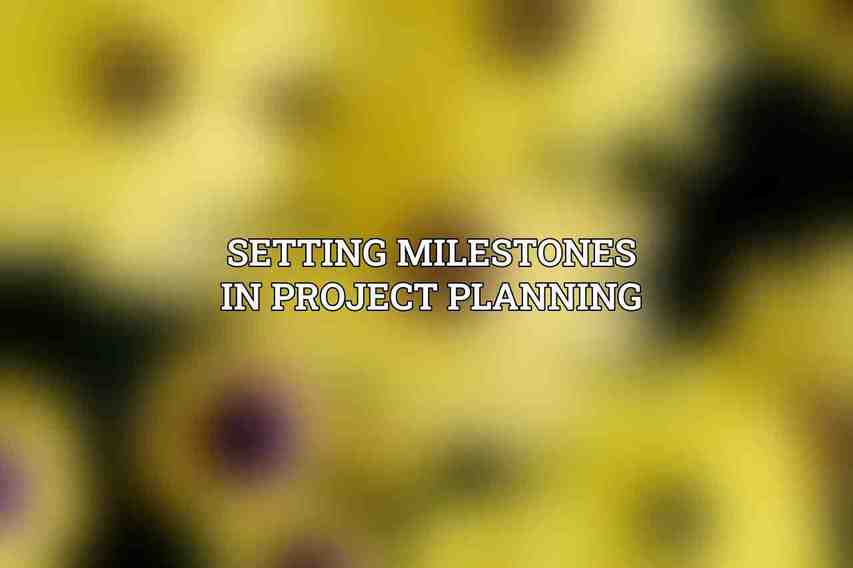In project management, milestones serve as crucial markers that signify the completion of major deliverables or decision points within a project. They are key events or achievements that help monitor progress and provide a structured approach to reaching project goals. The importance of milestones in project planning cannot be overstated as they help in tracking progress, ensuring accountability, and fostering effective communication among team members. By breaking down a project into smaller, manageable segments, milestones create a roadmap that keeps everyone on track and focused on the end goal. The benefits of using milestones include improved project visibility, better risk management, enhanced coordination, and increased stakeholder confidence in the project’s progress.
Determining Meaningful Milestones

When determining meaningful milestones, it is essential to align them with the overall project objectives. Each milestone should represent a significant step towards achieving the project’s ultimate goal. Breaking down complex goals into smaller steps can make the project more manageable and easier to track progress. Project managers should consider the project scope, timeframe, and available resources when setting milestones to ensure they are realistic and achievable. Identifying key decision points or deliverables as milestones can help keep the project on track and ensure that critical tasks are completed on time.
Setting Milestone Dates
Setting milestone dates is a critical aspect of project planning to ensure that the project stays on schedule. It is important to establish a realistic timeframe for each milestone, taking into account the dependencies and predecessor tasks that may impact their completion. Project managers can utilize tools like Gantt charts or project management software to visualize the project timeline and allocate resources effectively. Considering holidays and unforeseen events when setting milestone dates can help mitigate risks and avoid disruptions to the project schedule. Learn more about How to Define Scope in Project Planning
Communicating Milestones
Effective communication of milestones is essential for ensuring that all stakeholders are aligned and informed about the project’s progress. Stakeholder engagement and involvement in milestone planning can foster collaboration and ownership of project goals. Regular status updates and reporting on milestone achievements help keep stakeholders informed and engaged throughout the project lifecycle. Milestones can also serve as a progress indicator, allowing stakeholders to assess the project’s advancement and make informed decisions. It is crucial to keep stakeholders informed of any changes or delays to milestones to maintain transparency and manage expectations effectively.
Using Milestones to Monitor Project Progress
Milestones are an invaluable tool for monitoring project progress and identifying potential roadblocks early on. Tracking milestones against the planned schedule allows project managers to measure progress and identify any deviations that may require corrective action. By adjusting timelines and resources as needed based on milestone achievements, project managers can ensure that the project stays on track towards its goals. Reporting progress to stakeholders and management provides visibility into the project’s status and allows for informed decision-making to address any challenges or risks that may arise.
Continuous Improvement

Continuous improvement in milestone planning involves reviewing and evaluating the milestone setting process to identify areas for enhancement. Learning from past milestones and adjusting for future projects based on lessons learned can lead to more effective milestone planning. Seeking feedback from stakeholders and team members on the milestone planning process can provide valuable insights for refining the approach and increasing its effectiveness. By continuously refining milestone planning practices, project managers can optimize project outcomes and drive success in future endeavors.
Case Studies
A. Example of Successful Milestone Planning in a Construction Project
In a large-scale construction project, milestone planning played a crucial role in ensuring the timely completion of key project phases. By setting milestones for foundational work, structural completion, and finishing touches, the project team was able to track progress and address any delays promptly. This approach helped in coordinating various stakeholders, managing resources effectively, and delivering the project within the scheduled timeframe.
B. Case Study of Using Milestones to Manage a Software Development Project
In a software development project, milestones were set for key deliverables such as system architecture design, module development, testing, and deployment. By tracking these milestones closely, the project team could align their efforts, manage dependencies effectively, and meet project deadlines. This milestone-based approach enhanced communication among team members, identified bottlenecks early on, and led to successful project delivery.
C. Benefits Realized from Implementing a Milestone-Based Planning System
Organizations that have implemented a milestone-based planning system have reported various benefits, including improved project visibility, enhanced collaboration among team members, and better risk management. By setting clear milestones, projects were completed more efficiently, and stakeholders were more engaged throughout the project lifecycle. The structured approach offered by milestone planning resulted in increased project success rates and higher stakeholder satisfaction.
well-defined milestones are essential components of successful project planning, providing a roadmap for achieving project objectives, tracking progress, and ensuring project success. The benefits of milestone planning extend beyond project management, influencing stakeholder engagement, communication, and overall project performance. By embracing continuous improvement practices and learning from past milestones, project managers can refine their approach to milestone planning and increase the likelihood of project success. Implementing milestone-based planning systems can lead to improved project outcomes, increased efficiency, and enhanced stakeholder satisfaction in a wide range of industries and projects.
Frequently Asked Questions
What are milestones in project planning?
Milestones are specific points in a project timeline where significant progress is made and key objectives are achieved. They help track the project’s progress and ensure that it stays on track.
Why are milestones important in project planning?
Milestones provide a clear roadmap for the project team, stakeholders, and clients. They help in measuring progress, identifying potential issues, and celebrating achievements. Check this blog on Effective Goal Setting in Project Planning
How do you set milestones in project planning?
To set milestones, start by defining key deliverables and objectives for your project. Break down the project timeline into specific phases and identify checkpoints where important goals should be reached.
What is the significance of setting realistic milestones?
Setting realistic milestones ensures that the project remains achievable and manageable. Unrealistic milestones can lead to project delays, budget overruns, and decreased team morale.
How can milestones help in project monitoring and control?
Milestones serve as checkpoints for tracking progress and performance. By monitoring milestones, project managers can identify any deviations from the plan and take timely corrective actions.

